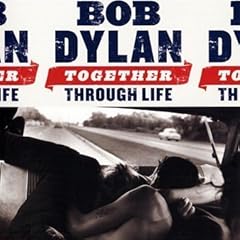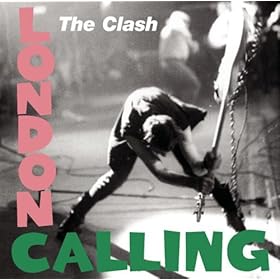
I'm going to be honest, the first time I listened through this I was underwhelmed. I'm a massive fan of
Time Out Of Mind,
"Love and Theft", and
Modern Times. I consider those great masterworks of Dylan. They don't compare to the 1960s triumvirate of his, but they come damn close. I expected another entry into that saga. What I got, and what you get when you listen to it, is something quite different.
To be fair to Bob Dylan, me expecting a masterwork every time the man puts song to tape is absurd, but when he releases masterwork material every time, what am I to expect? Another masterpiece? I wouldn't call this record that, but on its own it stands up particularly well. To grade this record by comparing it to his previous releases is unjust to the artist. That being said, the shtick, at first glance, is essentially the same as
Time Out Of Mind,
"Love and Theft", and
Modern Times, but I get the feeling that this record is a different entry entirely. It sounds similar but the essence and stuff of it is distinct.
They say it's all based on those 1950s Chess Records. I can kind of hear the resemblance, and Dylan's growl comes off like Muddy Waters at times, but beyond that the resemblance becomes fuzzy. The songs here tend to sit much more plainly and loose. They also don't roll as tightly as they did on
Modern Times or
"Love and Theft", more or less idly working their way through at a slower pace. There are fewer straight up ballads on this record, the notable one being "Life Is Hard." The "box," provided by
Los Lobos man David Hidalgo pops up all over the record, making his mark known, while Mike Campbell provides some pointed guitar lines that work well in the songs. It's a simple album musically. No frills, no nothing, just straight up music. The record flows reasonably well, without any perturbing turns of mood or extremely weak songs that allow the record to consistently survive multiple sustained listens.
Perhaps in some ideal world the album's production would have been handled by someone else.
Time Out of Mind really excelled as a record (moreso than
"Love and Theft" and Modern Times) because of different production values. I can particularly imagine this record becoming on par to his 1960s output with some Lanois,
Time Out Of Mind-esque production. Dylan is by no means a bad producer (there are worse producers, that's for sure), but perhaps the songs could have been brought to that "next level" with a good old-fashioned producer at the helm. That's the only major knock on this record. The production is good, not great. Everything sounds lively and it all works in the end, but perhaps in its plainness some latent quality that could emerge to push the record beyond the barriers still remains lost behind the simple production.
What had initially bothered me were the lyrics. They were so plain, so simple, so...un-Dylan. Where did the trippy imagery, the whacked out Bible references, and general pissiness go? They're not really there in the typical quantities. Perhaps due to working with Robert Hunter, the lyrics have become much plainer than usual, moreover embracing life rather than sneering and growling at it. Once you get past the fact that Dylan is purposely not writing in typical Dylan fashion, it becomes a lot easier to accept and to thus embrace. Dylan serves up great lines on this record, and if they're not as kooky as they used to be they still prove that Dylan still has the stuff for lyric-writing. He's always had a knack for words, and it's no different on this record. You'd be suprised at the depth here, but I won't spoil those moments on the record when you hear them.
Dylan has always been a shapeshifter. Blues singer to folkie, to pissed off rock auteur to lonesome hobo, to Nashville-esque country star...he has evolved too many times to be pigeonholed once more. Most people probably had the guy pinned down after
Modern Times, which is strikingly similar to the two works preceding. So naturally a guy like him has to change again. It's necessary, it's vital for his existence. A different form, a different time, a different album, a free-floating entry into the complex Dylan life and canon. It is what it is, nothing more and nothing less.
86/100







